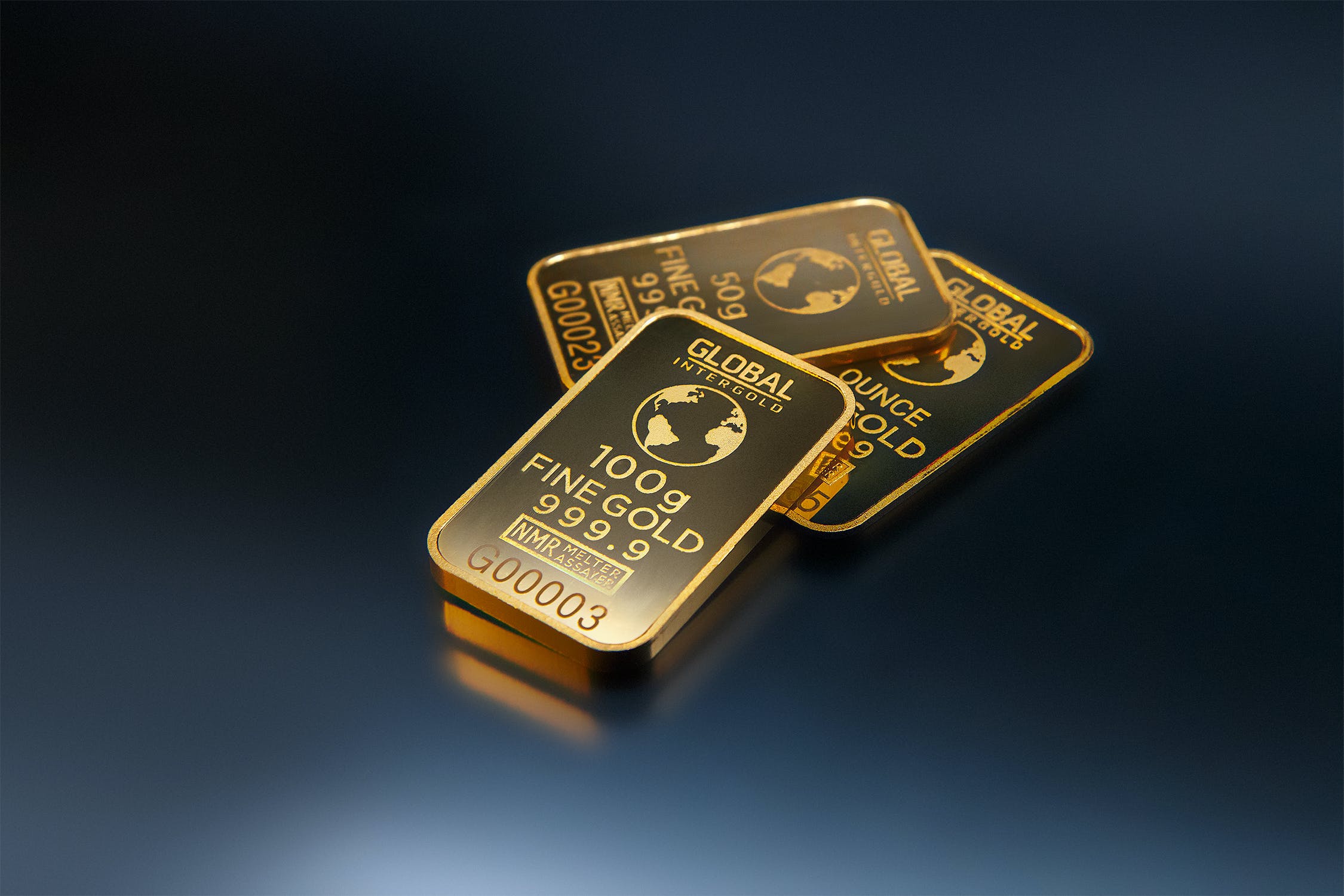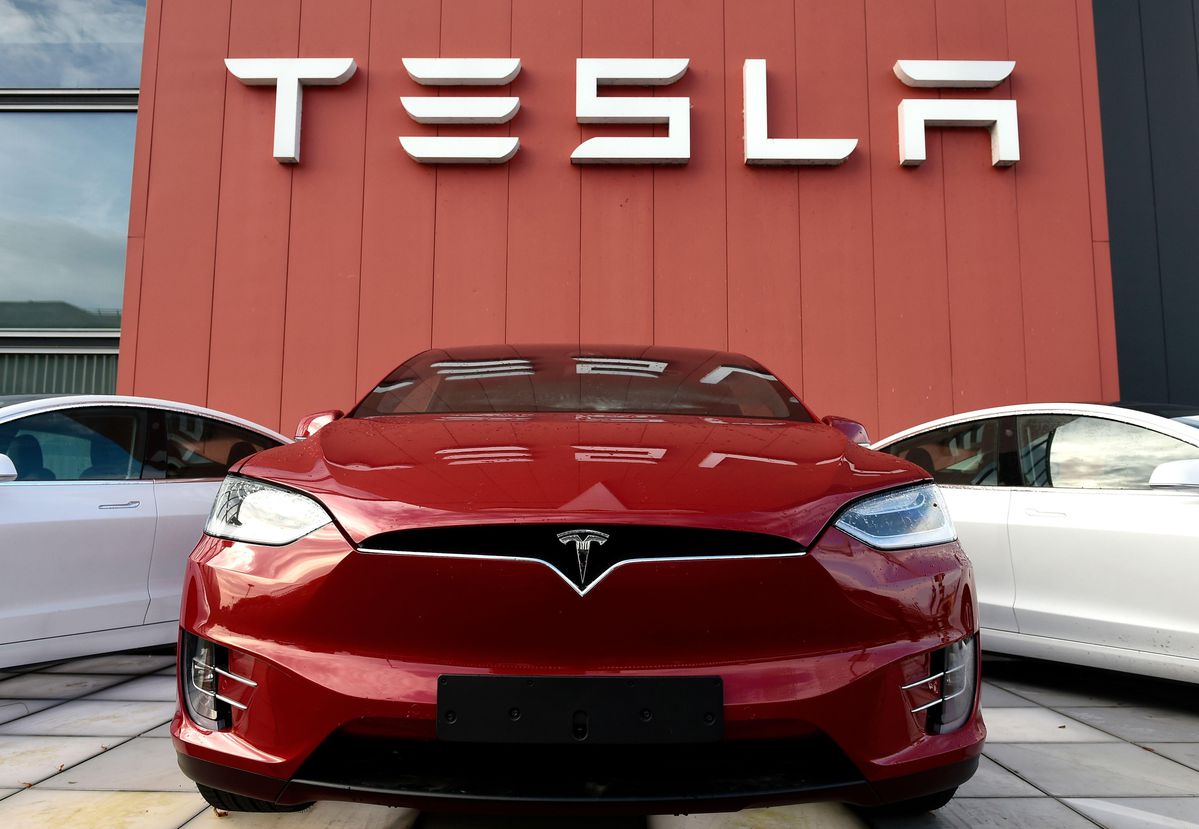Is Bitcoin Finally a Better Store of Value Than Gold?
Jack Choros
Content Marketing
Federal Reserve Chairman Jerome Powell’s comments during a recent webinar sponsored by the Bank of International Settlements (BIS) are spreading throughout the cryptoverse. He is officially on the record in saying that Bitcoin is a substitute for gold rather than paper money.
That’s not necessarily a total newsflash to you if you hold the same conviction. But the fact that Powell holds a prominent role within the American financial system means his views carry some weight.
Then again, the context behind his point of view is one of caution. Powell is essentially warning the American people that Bitcoin is still a highly volatile asset and that it’s therefore not an adequate store of value.
If you do think it’s a solid store of value, you then have to ask yourself whether or not it’s a better store of value over other traditional assets like gold.
That’s the question we aim to answer in this week’s edition of Progressive Investor, published right here on the Netcoins blog.

The Bullish Case for Bitcoin as a Better Store of Value Than Gold
Since Netcoins is a cryptocurrency exchange and you’re a Progressive Investor who is investing in cryptocurrencies (or about to do so), let’s start with deconstructing the bullish argument for Bitcoin being a better store of value than gold.
Digital Currency Is Civilization’s Logical Next Step in Communicating Value
At the time of this writing, the estimated market capitalization of gold is $13.84 trillion Canadian. In comparison, Bitcoin’s market capitalization is currently $1.20 trillion Canadian. That means Bitcoin’s value will need to outpace gold by more than tenfold for the cryptocurrency to be worth more than gold. Some experts believe that’s exactly what will happen by 2030.
That belief points largely to the idea of digital currencies being the next evolution of money. Those who see the light would ask you to consider how communicating value has evolved:
- In the days of the caveman, humans kept track of value using sticks and stones to create man-made ledgers.
- Later civilizations began to realize they could barter and trade goods for one another. In other words, help me hunt an animal and I’ll let you keep the ax.
- In 1100 BC, China began trading weapons for one another, but they made the edges of the weapons circular so that people didn’t injure themselves while making exchanges.
- 600 years later (500 BC), the first official currency made from precious metals was minted in a small country in Asia then called Lydia.
- In 1200 A.D., China starts using paper money. Europe wouldn’t follow suit on that until 400 years later.
- Fast-forward to 1955. The credit card is invented.
- Fast-forward one more time to 2008. The Bitcoin whitepaper is published.
It’s taken hundreds of years to get to this point. If digital currencies built on public blockchains are the future of value communication, there’s no reason not to think that Bitcoin won’t be more valuable than gold in a decade or less.
Bitcoin and Cryptocurrencies Have Reached the Point of No Return
The world has already reached the point of living in a cashless society. Many of us are paying for things without even pulling plastic out of our wallets because smartphones can store credit card data now.
The bullish argument here is bigger than that though. It points to the fact that central banks and governments are launching national digital currencies. Like Bitcoin, these digital currencies will live on blockchains. But unlike Bitcoin, those blockchains will not be truly public, trustless, or democratic.
The only thing central bank and government digital currencies will do is further blur the lines between themselves and Bitcoin. The transition will make it easier for those late to the crypto party to accept the idea of exchanging value on a blockchain. Once they realize Bitcoin is fundamentally different from government-backed digital currencies, those latecomers will make the switch once and for all.
Add that to the fact that publicly traded companies (like Tesla) are starting to trade in their cash reserves for Bitcoin, Ethereum, and other cryptocurrencies, and it’s obvious that our society is reaching a point of no return.

Bitcoin’s Supply Is Finite, Gold’s Is Not
There will only ever be 21 million bitcoin in existence and it will take until the year 2140 for the last coin to enter circulation. Both of those facts have been true since the Bitcoin blockchain launched in January 2009.
Consider that nobody can tell you how much gold there is on the planet with accuracy down to the 12th decimal place (the number of decimal places Bitcoin goes to).
There is also a chance that Tesla founder Elon Musk figures out how to mine gold off of asteroids shooting through space. If he does that, gold could drop significantly in value, because we will have access to way more than we need. Remember, this idea is coming from a guy that is revolutionizing the future of automobiles and wants us to move to Mars. He also knows how to bring rockets back to earth without destroying them.
Bitcoin may not always be in high demand, but the supply is finite. The same can’t be said for bars of gold.
The Bullish Case for Gold Being a Better Store of Value Than Bitcoin
Okay, okay. You probably don’t want to hear the bullish case for gold being a better store of value, but there is certainly a valid case to be made and here it is.
Bitcoin’s Appreciation Is Based on Speculation and Government Regulation Will Kill That
You’re supposed to claim crypto profits on your taxes. But since you can’t hold Bitcoin in a bank account, RRSP, or TFSA, one could argue it’s theoretically voluntary for you to do so.
If transacting in Bitcoin automatically generated a summary that was sent to your investment broker or your government, you’d be much less likely to speculate on the future of crypto prices because your opportunity cost would go up. You’d be paying transaction fees to the blockchain, and government regulators would see how much you’re making.
Perhaps the CRA will never get to the point of seeing all of your transactions on a statement, but an outright ban of Bitcoin might kill your desire to speculate.
Gold doesn’t have that problem.
Cryptocurrency projects are a Dime a Dozen
Bitcoin’s supply might be limited to 21 million coins, but new cryptocurrency projects are popping up all of the time. Not only will many of these projects fail, but the constant innovation that occurs within the cryptocurrency space means that cryptocurrencies may never truly overtake traditional finance.
There are simply too many options and too many technical considerations in using Bitcoin and other cryptocurrencies for all of us to truly go beyond the traditional financial system altogether.

Bitcoin Is Still Way Too Volatile
Although Bitcoin is less volatile than it was 10 years ago, the standard deviation of the price is still around 75% today.
As the stock market cools off at the time of this writing, the price of Bitcoin and Ethereum are down more than 10% in the last 7-10 days. If you’re storing both Bitcoin and gold for the long term, you probably don’t care about day-to-day price fluctuations. But realistically if your investment horizon is 12 months and the overprinting of money causes the economy to crash tomorrow, gold is more likely to hold its current value.
The fact that cryptocurrencies have a much higher upside than gold is great, but gold is not as closely tied to the performance of the stock market as cryptocurrencies are. This means the latter is still riskier in the eyes of many.
A Quick Disclaimer about Whether Bitcoin Is a Better Store of Value Than Gold
Nobody knows your financial situation or level of risk tolerance when it comes to investing better than you. Secondly, part of finding your answer to the store of value question means understanding your own biases, values, and beliefs.
For example, Warren Buffett has always said that Bitcoin has no fundamental value. If you’re a big fan of the ‘Oracle from Omaha’, you might agree with Buffett.
On the other hand, if your view on Buffett is that he’s a representation of old-time investors who don’t understand anything outside of the traditional financial world, perhaps you don’t value his opinion at all.
You might also want to consider your views on what determines an asset is a good store of value in the first place.
If you think the fact that an asset having a historical track record as a store of value dating back thousands of years is what matters most, then you are less likely to opt for Bitcoin as the better store of value.
Then again, if a better store of value means you are more likely to end up with a greater profit in the future, you might choose Bitcoin over gold and ignore the fact that you can also lose more value in the long run.
A more conservative investor who opposes you will say that whether or not something has exponential upside has nothing to do with maintaining the existing value in the first place.
All of this is to say that part of whether one asset is a better store of value over the other is subjective. No matter how much you read about this topic, always remember that.
How and Why You Should Use Bitcoin to Store Your Value
The best way to store your value within cryptocurrencies is to buy Bitcoin with Netcoins. Whether you prefer to do business with a cryptocurrency exchange in Toronto or a cryptocurrency exchange in Vancouver, it doesn’t matter. If you’re Canadian, you can sign up for a free account with Netcoins and get your hands on Bitcoin, Ethereum, Litecoin, and QCAD (Canada’s first stablecoin).
As for why you should use Bitcoin as a store of value?
Even if you’re not sure which side of the store of value argument you sit on, buying Bitcoin is a great way to diversify your portfolio. It’s the most proven asset in the cryptocurrency asset class and it’s the entry-level cryptocurrency that most new crypto investors familiarize themselves with first.
It’s up to you to decide whether you value the upside of Bitcoin over precious metals or the historic track record of gold over the once mysterious cryptocurrency that is now mainstream.
Making the best choice for yourself is what being a Progressive Investor is all about!
Writer, content marketing at Netcoins.